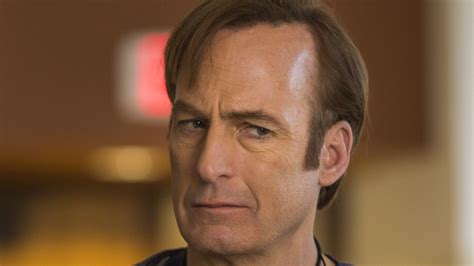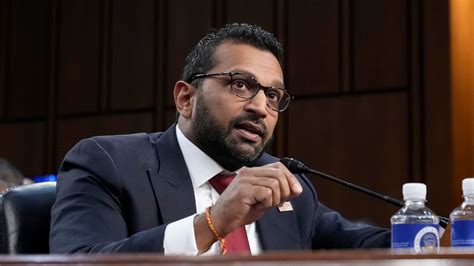
“Better Call Saul” star Bob Odenkirk has strongly criticized Fox News host Jesse Watters for what Odenkirk deemed a disrespectful and “simpleton” remark directed at White House Press Secretary Karine Jean-Pierre.
Actor Bob Odenkirk, known for his portrayal of Saul Goodman in “Breaking Bad” and “Better Call Saul,” has publicly condemned Fox News host Jesse Watters for comments made about White House Press Secretary Karine Jean-Pierre, labeling Watters’ remarks as “simpleton” and indicative of a broader issue within contemporary political discourse. The incident has ignited a debate about media ethics, political commentary, and the boundaries of respectful dialogue, drawing attention from media outlets and social commentators alike.
Odenkirk’s rebuke stemmed from a segment on Watters’ Fox News program where the host seemingly mocked Jean-Pierre during a press briefing. Although the specific remarks were not detailed in the initial Yahoo News report, Odenkirk’s reaction suggests the comments were perceived as dismissive and potentially demeaning. Odenkirk took to social media, specifically X (formerly Twitter), to voice his displeasure, emphasizing the need for civility and respect, even amidst political disagreements. His intervention underscores the growing trend of public figures using social media to address perceived injustices or unethical behavior in media coverage.
The actor, who typically refrains from overt political commentary, felt compelled to speak out against what he considered a clear instance of disrespect. “Hey Jesse Watters, you’re a simpleton,” Odenkirk wrote in his post on X. “Please show some respect for people doing their jobs, even if you disagree with them.” The succinct but pointed message quickly garnered widespread attention, sparking a flurry of responses from various corners of the internet. Many users echoed Odenkirk’s sentiments, criticizing Watters’ approach and applauding Odenkirk for using his platform to promote respectful discourse. Others defended Watters, arguing that his commentary falls within the purview of free speech and that political figures should expect criticism as part of their role.
This incident highlights the ongoing tensions between media outlets and the individuals they cover, particularly in the highly polarized landscape of contemporary American politics. The role of a White House Press Secretary is inherently demanding, requiring the ability to navigate complex issues, respond to challenging questions, and represent the administration’s policies effectively. Jean-Pierre, as the first openly gay and first Black White House Press Secretary, holds a significant position, and any perceived disrespect toward her can be interpreted through the lens of broader societal issues related to diversity and inclusion.
Odenkirk’s decision to address Watters directly reflects the increasing accessibility and immediacy of social media as a platform for public accountability. Celebrities and public figures now have the means to bypass traditional media channels and communicate directly with their audience, allowing them to shape narratives and influence public opinion in real time. This dynamic can be both empowering and challenging, as it also opens the door to potential misinterpretations and the spread of misinformation.
The context surrounding Odenkirk’s criticism also involves the broader discussion about the tone and nature of political commentary on cable news. Critics often argue that certain programs prioritize sensationalism and partisan attacks over substantive analysis and objective reporting, contributing to a climate of division and animosity. In this context, Odenkirk’s call for respect can be seen as a broader critique of the media’s role in shaping public discourse and the need for greater responsibility in how political figures are portrayed and discussed.
The reaction to Odenkirk’s post has been varied, with supporters praising his stance and detractors accusing him of hypocrisy or political bias. However, the incident has undeniably amplified the conversation about media ethics and the importance of respectful dialogue, even in the face of strong political disagreements. It remains to be seen whether Watters or Fox News will respond directly to Odenkirk’s criticism, but the episode serves as a reminder of the power of public figures to influence public opinion and hold media outlets accountable for their reporting.
The exchange between Odenkirk and Watters also brings to the forefront the increasing blurring of lines between entertainment and politics. Celebrities are increasingly using their platforms to advocate for political causes, and political commentators often employ entertainment-style techniques to engage their audience. This convergence can be both beneficial and problematic, as it has the potential to raise awareness about important issues but also risks trivializing serious political debates.
Ultimately, the incident involving Odenkirk and Watters underscores the complexities of media ethics, political discourse, and the role of public figures in shaping public opinion. It serves as a reminder that even in a highly polarized environment, there is a need for civility, respect, and a commitment to responsible reporting. The long-term impact of this exchange remains to be seen, but it has undoubtedly added another layer to the ongoing debate about the state of political communication in America.
Further adding nuance to the situation, it’s important to consider the evolving role of comedians and satirists in political commentary. Figures like Jon Stewart, Stephen Colbert, and John Oliver have demonstrated the power of humor to engage audiences with complex political issues and offer insightful critiques of political figures and institutions. While Watters’ style of commentary differs significantly from these figures, his role as a Fox News host inherently places him within the realm of political commentary, albeit from a more partisan perspective. The line between legitimate critique and disrespectful mockery can be subjective, and Odenkirk’s criticism highlights the potential for missteps in this delicate balance.
The actor’s firm stance may influence other public figures to address their concerns openly. The nature of online discourse allows direct interaction between public figures and their audiences, offering a channel for addressing issues, while also potentially escalating conflicts.
The incident also prompts reflection on the standards to which public figures, including actors and media personalities, are held. While actors like Odenkirk may primarily be known for their entertainment work, their public platforms often afford them significant influence. This influence brings with it a responsibility to engage in thoughtful and respectful dialogue, particularly when addressing sensitive political issues. Similarly, media personalities like Watters are expected to adhere to certain ethical standards in their reporting and commentary, even within the context of partisan media outlets.
The interaction between Odenkirk and Watters also highlights the challenges of navigating political discourse in an era of social media. While social media platforms can facilitate direct communication and foster greater accountability, they also have the potential to amplify negativity and contribute to a climate of polarization. The brevity of social media posts can often lead to misunderstandings and misinterpretations, making it difficult to engage in nuanced discussions.
Furthermore, it is essential to consider the context in which Watters’ comments were made. Fox News, as a media organization, has a distinct editorial stance and a history of commentary that often aligns with conservative viewpoints. This context inevitably shapes the nature of the commentary offered by its hosts, including Watters. While this does not excuse any disrespectful or inappropriate remarks, it is essential to understand the broader media ecosystem in which such comments are made.
In addition, it’s worth noting the potential impact of Odenkirk’s remarks on his own career and public image. While many have praised him for speaking out against perceived injustice, others may view his comments as overly political or divisive. In an increasingly polarized environment, public figures often face scrutiny for expressing their political views, and Odenkirk’s decision to take a stand against Watters may have both positive and negative consequences for his career.
Furthermore, this incident underscores the importance of media literacy and critical thinking. Consumers of news and commentary should be able to critically evaluate the information they receive and distinguish between objective reporting and partisan commentary. This requires a careful assessment of sources, a willingness to consider different perspectives, and an awareness of potential biases.
Moreover, the exchange between Odenkirk and Watters highlights the need for greater media accountability. While media outlets have a right to express their views and engage in commentary, they also have a responsibility to ensure that their reporting and commentary are accurate, fair, and respectful. This requires a commitment to ethical standards, a willingness to correct errors, and a willingness to engage in constructive dialogue with critics.
In conclusion, the incident involving Bob Odenkirk and Jesse Watters is a microcosm of the larger challenges facing American political discourse. It highlights the need for civility, respect, media literacy, and media accountability. It also underscores the importance of public figures using their platforms responsibly and engaging in thoughtful and constructive dialogue. The long-term impact of this incident remains to be seen, but it has undoubtedly sparked an important conversation about the state of political communication in America.
Frequently Asked Questions (FAQ)
1. What exactly did Jesse Watters say that prompted Bob Odenkirk’s response?
While the original Yahoo News report doesn’t explicitly detail the exact remarks made by Jesse Watters, it implies that Watters’ comments were perceived as disrespectful and dismissive towards White House Press Secretary Karine Jean-Pierre. Odenkirk labeled Watters’ remarks as “simpleton,” suggesting they were unsophisticated and lacked respect. More detailed accounts from other media outlets or transcripts of Watters’ show would be required to specify the exact statement that triggered Odenkirk’s response.
2. Why did Bob Odenkirk, an actor, decide to publicly criticize Jesse Watters?
Bob Odenkirk’s decision to speak out likely stems from a personal conviction that Watters’ remarks were inappropriate and disrespectful. As a public figure with a significant platform, Odenkirk may have felt a responsibility to use his influence to promote civility and respect in political discourse. Actors and other public figures increasingly use their platforms to address political and social issues they feel strongly about, and Odenkirk’s action aligns with this trend. He typically refrains from political commentary, making this action a response to what he viewed as a clear instance of disrespect.
3. What has been the general reaction to Bob Odenkirk’s criticism of Jesse Watters?
The reaction to Odenkirk’s criticism has been mixed, with supporters praising his stance and detractors criticizing him for being hypocritical or politically biased. Many users on social media have echoed Odenkirk’s sentiments, condemning Watters’ approach and applauding Odenkirk for using his platform to advocate for respectful dialogue. Others have defended Watters, arguing that his commentary falls within the bounds of free speech and that political figures should expect criticism as part of their role. The polarized nature of contemporary political discourse often leads to such divided reactions.
4. What is the role of a White House Press Secretary, and why is it important to show respect to the person holding that position?
The White House Press Secretary serves as the primary spokesperson for the President and the administration. They are responsible for communicating the administration’s policies, responding to questions from the media, and managing the White House’s public image. Showing respect to the Press Secretary, regardless of one’s political views, is important because it demonstrates respect for the office and the democratic process. Disrespectful or demeaning remarks can undermine the credibility of the office and contribute to a climate of hostility and division. Karine Jean-Pierre’s position as the first openly gay and first Black White House Press Secretary amplifies the significance of this respect, considering the broader societal implications of diversity and inclusion.
5. What are the broader implications of this incident for media ethics and political discourse in the United States?
This incident highlights the ongoing challenges of maintaining civility and respect in an increasingly polarized media landscape. It raises questions about the responsibility of media outlets to ensure that their reporting and commentary are accurate, fair, and respectful. It also underscores the importance of media literacy and critical thinking for consumers of news and commentary. The incident serves as a reminder that public figures, including actors and media personalities, have a responsibility to engage in thoughtful and constructive dialogue, even when addressing controversial political issues. The blurring lines between entertainment and politics further complicate these issues. The long-term impact of the incident remains to be seen, but it has undoubtedly contributed to the ongoing debate about the state of political communication in America.









